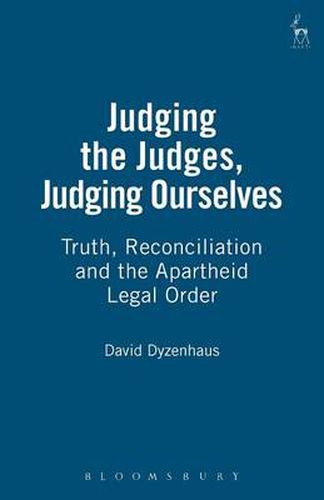Readings Newsletter
Become a Readings Member to make your shopping experience even easier.
Sign in or sign up for free!
You’re not far away from qualifying for FREE standard shipping within Australia
You’ve qualified for FREE standard shipping within Australia
The cart is loading…






With a Foreword by the South African Minister of Water Affairs and Forestry, Kader Asmal.
The Truth and Reconciliation Commission (TRC), established in South Africa after the collapse of apartheid, was the bold creation of a people committed to the task of rebuilding of a nation and establishing a society founded upon justice, equality and respect for the rule of law. As part of its historic, cathartic, mission, the TRC held a special hearing, calling to account the lawyers - judges, academics and members of the bar -who had been crucial participants in the apartheid legal order. This book is an account of those hearings, and an attempt to evaluate, in the light of theories of adjudication, the historical role of the judiciary and bar in the apartheid years.
This book offers us the spectacle of an entire legal system on trial. The echoes from this process are captured here in a way which will appeal to all readers, lawyers and non-lawyers alike, interested in the relationship between law and justice, as it is exposed during a period of transition to democracy.
$9.00 standard shipping within Australia
FREE standard shipping within Australia for orders over $100.00
Express & International shipping calculated at checkout
With a Foreword by the South African Minister of Water Affairs and Forestry, Kader Asmal.
The Truth and Reconciliation Commission (TRC), established in South Africa after the collapse of apartheid, was the bold creation of a people committed to the task of rebuilding of a nation and establishing a society founded upon justice, equality and respect for the rule of law. As part of its historic, cathartic, mission, the TRC held a special hearing, calling to account the lawyers - judges, academics and members of the bar -who had been crucial participants in the apartheid legal order. This book is an account of those hearings, and an attempt to evaluate, in the light of theories of adjudication, the historical role of the judiciary and bar in the apartheid years.
This book offers us the spectacle of an entire legal system on trial. The echoes from this process are captured here in a way which will appeal to all readers, lawyers and non-lawyers alike, interested in the relationship between law and justice, as it is exposed during a period of transition to democracy.